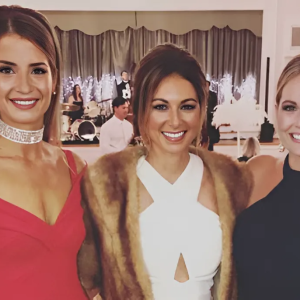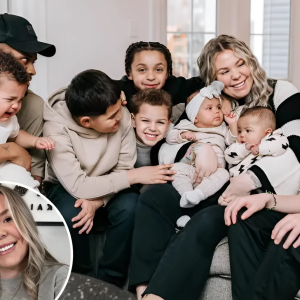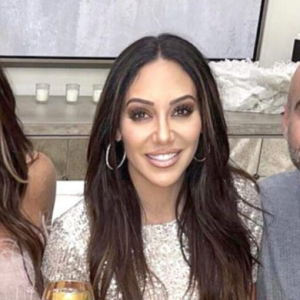In ELLE.com’s monthly series Office Hours, we ask people in powerful positions to take us through their first jobs, worst jobs, and everything in between. This month, we spoke to Kandi Burruss, a producer of the Broadway revival of The Wiz, opening April 17. A reality television star who won season three of The Masked Singer, Burruss recently announced she was leaving The Real Housewives of Atlanta after 14 seasons to focus on other creative pursuits. Burruss got her start as a recording artist in the girl group Xscape and has writing credits on songs such as “Bills, Bills, Bills” by Destiny’s Child, “Tell Me No” by Whitney Houston, and “Break Up with Your Girlfriend, I’m Bored” by Ariana Grande. She also received a Grammy award for Best R&B Song for co-writing “No Scrubs” by TLC. Born and raised in Georgia, Burruss attended a performing arts high school where her love for the arts blossomed. Ever since, she’s been passionate about uplifting Black voices in theater and music, and last Broadway season, Burruss produced August Wilson’s The Piano Lesson, which was named the highest-grossing August Wilson play in Broadway history. Below, she opens up about when she first started performing, her undying love for The Wiz, and how Broadway still needs to change.
My first job
I’ve never had a job. Honestly, I wanted to work, but my stepdad told me he didn’t want me to, because he just wanted me to focus on school. Then, I got my record deal when I was 16 years old. Our group Xscape put out our first single before my senior year, so I went into my senior year with a No. 1 record on the R&B chart. From there, I haven’t stopped.
On my unconventional career path
I always say to stop telling your kids they have to wait until they graduate from high school or college to go after their dreams. When I was in high school, my drama teacher took our class to audition for a community theater play. That opened my eyes. I was like, “Wait, what? So, I don’t have to just do the school play?” Nobody ever really tells you that you can actually go and apply for those things, start performing in different places, recording your music, putting your stuff up online, or auditioning for TV, film, music, everything, as a kid. When my English teacher in the 11th grade asked everybody in class, “What do you want to be when you guys grow up?” I said, “Well, I want to be a singer and an actress.” She said, “What real job do you want to do?” Mind you, we were at a performing arts high school. [Xscape] got our record deal that same year, and the following year, our records were on the radio. I was still coming to school on the days I wasn’t on tour and had that same teacher. My mom had the greatest time rubbing it in her face.
Why I wanted to produce The Wiz

The Wiz is my favorite musical of all time. As a kid, I only saw the movie version, and I literally would watch it again and again and knew all the words, all the songs. When I was a teenager, Stephanie Mills released “Home” as a single for her project at the time; I used to listen on the bus every day. So it’s a childhood dream to be a part of this. We toured The Wiz first and then came back to do our run on Broadway. I love our version of The Wiz, because I feel the new updated script [featuring additional material by Amber Ruffin] is so funny.
The stories I’m passionate about
I really love stories that are relatable. I love stories that can touch people. I love stories that make you laugh, make you cry, and make you think. I think the best part of being a producer on Thoughts of a Colored Man in 2021 was that it really made people think and touched hearts. It was the first show on Broadway that starred seven Black men [and had an all-Black team], and it showed them in a different light than the way Black men are depicted in the media. I love to elevate the voices of people of color on Broadway, because for a long time, shows that starred people of color didn’t get the same support financially. It’s sad to say that, in 2024, we still have to push for that.
How Broadway needs to progress
People like to throw money at a problem, but really it’s leadership. If you don’t see diversity in your board or in your executive room, you don’t have any people to tell you when something’s wrong or to introduce you to new ideas. I love being the talent on the show. I love being the singer on the stage. I love being the actor on the TV show, the reality star. But to me, if I want to bring more opportunity, I really need to get behind the scenes. Broadway is a place where we have started seeing more opportunities for people of color as far as it pertains to talent onstage, but as far as the people who are running things in the background, there are not many of us. It’s constantly evolving, but we need to continue to push for representation.
And that’s just in business, period. I don’t know what makes people scared to invest in a Black-owned business or a Black-run production or whatever it may be. It’s important to me to get behind these projects and also prove that shows that star people of color can be successful. At the end of the day, that’s what makes people want to invest. 70 percent of our ticket buyers [for The Piano Lesson] were people who were buying a ticket to a Broadway show for the first time. I think that, realistically, a lot of Black people didn’t go to Broadway shows in the past because it never was marketed to them to make them feel like, “This is also for you.” That has been part of my job, to build a team that says, “Hey guys, we got this great show, we want you to come see it.”





